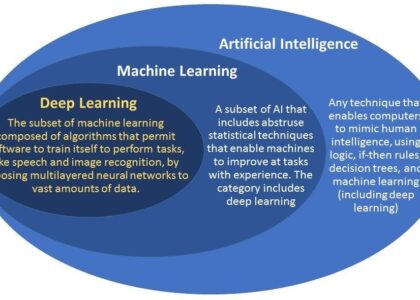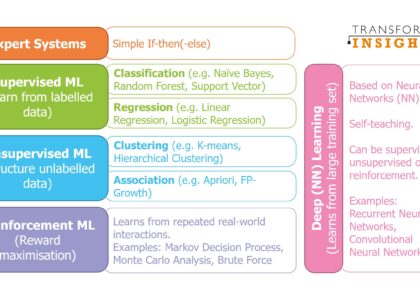Unlocking Business Potential with Data Analytics
In today’s fast-paced and competitive business environment, data analytics has emerged as a crucial tool for organisations aiming to stay ahead. By leveraging data analytics, businesses can gain valuable insights into their operations, customer behaviour, and market trends, enabling them to make informed decisions and drive growth.
The Role of Data Analytics in Business
Data analytics involves the process of examining large sets of data to uncover hidden patterns, correlations, and other insights. This process is essential for businesses as it helps in:
- Improving Decision-Making: With access to detailed data analysis, businesses can make decisions based on evidence rather than intuition. This leads to more accurate forecasting and strategic planning.
- Enhancing Customer Experience: By analysing customer data, companies can better understand their preferences and behaviours. This allows for personalised marketing strategies and improved customer service.
- Optimising Operations: Data analytics helps identify inefficiencies in business processes, enabling organisations to streamline operations and reduce costs.
- Identifying Market Trends: Keeping abreast of market trends is vital for staying competitive. Data analytics provides insights into emerging trends and consumer demands.
The Types of Data Analytics
There are several types of data analytics that businesses use to extract value from their data:
- Descriptive Analytics: This involves summarising historical data to understand what has happened in the past.
- Diagnostic Analytics: This type focuses on understanding why certain events occurred by identifying patterns or anomalies.
- Predictive Analytics: Using statistical models and machine learning techniques, predictive analytics forecasts future outcomes based on historical data.
- Prescriptive Analytics: This advanced form provides recommendations for actions that can be taken to achieve desired outcomes.
The Challenges of Implementing Data Analytics
While the benefits of data analytics are significant, implementing it effectively poses several challenges:
- Data Quality: Ensuring high-quality data is critical as inaccurate or incomplete data can lead to erroneous conclusions.
- Lack of Skilled Personnel: There is a growing demand for skilled analysts who can interpret complex datasets effectively.
- Cultural Resistance: Organisations may face resistance from employees who are accustomed to traditional decision-making processes.
- Data Privacy Concerns: Businesses must navigate the complexities of ensuring compliance with regulations such as GDPR while leveraging customer data.
The Future of Business with Data Analytics
The future holds immense potential for businesses that embrace data analytics. With advancements in artificial intelligence (AI) and machine learning technologies, the capabilities of data analysis will continue to expand. Businesses that invest in these technologies will be better positioned to anticipate market changes and adapt swiftly.
The integration of AI with data analytics will also enable real-time decision-making processes, allowing companies to respond promptly to opportunities or threats. Moreover, as more industries adopt Internet of Things (IoT) devices, the volume of available data will grow exponentially, offering even richer insights into various aspects of business operations.
A Conclusion on Embracing Data-Driven Strategies
The power of business and data analytics cannot be overstated. As organisations strive for growth amidst increasing competition, leveraging the full potential of their data becomes paramount. By overcoming implementation challenges and fostering a culture that values evidence-based decision-making through robust analytical practices, businesses can unlock new levels of efficiency and innovation. Embracing a strategic approach towards integrating advanced analytical tools will undoubtedly lead companies towards sustained success in an ever-evolving marketplace.
Essential Insights: Exploring the Role of Data Analytics in Business Success
- What is data analytics and how does it benefit businesses?
- How can businesses use data analytics to improve decision-making?
- What are the different types of data analytics used in business?
- What challenges do businesses face when implementing data analytics?
- How can artificial intelligence (AI) enhance data analytics for businesses?
What is data analytics and how does it benefit businesses?
Data analytics is the process of examining large datasets to uncover valuable insights and trends that can help businesses make informed decisions. By utilising data analytics, businesses can gain a deeper understanding of their operations, customer behaviour, and market dynamics. This enables them to enhance decision-making processes, improve operational efficiency, personalise customer experiences, identify new business opportunities, and stay ahead of competitors. Ultimately, data analytics empowers businesses to drive growth, increase profitability, and adapt to changing market conditions with confidence.
How can businesses use data analytics to improve decision-making?
Businesses can harness the power of data analytics to enhance decision-making processes by leveraging insights derived from analysing vast amounts of data. By utilising advanced analytical tools and techniques, organisations can identify patterns, trends, and correlations within their data sets, enabling them to make informed and strategic decisions. Data analytics empowers businesses to forecast future outcomes accurately, optimise operations, understand customer behaviour, and identify market opportunities. Ultimately, by integrating data analytics into their decision-making processes, businesses can gain a competitive edge and drive growth in today’s dynamic business landscape.
What are the different types of data analytics used in business?
In the realm of business and data analytics, a frequently asked question revolves around the various types of data analytics employed to extract meaningful insights. Businesses commonly utilise descriptive analytics to summarise historical data, diagnostic analytics to understand underlying patterns or anomalies, predictive analytics to forecast future outcomes based on past data, and prescriptive analytics to provide actionable recommendations for achieving desired results. Each type serves a distinct purpose in helping organisations make informed decisions, optimise operations, enhance customer experiences, and stay ahead of market trends in today’s dynamic business landscape.
What challenges do businesses face when implementing data analytics?
Businesses encounter various challenges when implementing data analytics. One significant hurdle is ensuring the quality of data, as inaccurate or incomplete information can lead to flawed insights and decisions. Additionally, the shortage of skilled personnel proficient in interpreting complex datasets poses a challenge for many organisations. Cultural resistance to adopting data-driven decision-making processes within traditional business structures can also impede successful implementation. Moreover, navigating data privacy concerns and regulatory compliance, such as GDPR, adds another layer of complexity to the implementation of data analytics in business operations. Addressing these challenges requires a strategic approach that prioritises data quality, fosters a culture of analytics, and invests in training and talent development to maximise the benefits of data analytics effectively.
How can artificial intelligence (AI) enhance data analytics for businesses?
Artificial intelligence (AI) can significantly enhance data analytics for businesses by automating complex processes, improving accuracy, and providing deeper insights. AI algorithms are capable of processing vast amounts of data at unprecedented speeds, identifying patterns and trends that might be missed by human analysts. This enables businesses to make more informed decisions quickly. Additionally, AI can enhance predictive analytics by using machine learning models to forecast future outcomes based on historical data, allowing organisations to anticipate market changes and customer behaviour more effectively. Moreover, AI-driven tools can offer real-time analytics, enabling businesses to respond swiftly to emerging opportunities or challenges. By integrating AI into their data analytics strategies, companies can achieve greater efficiency, reduce operational costs, and gain a competitive edge in their respective industries.






